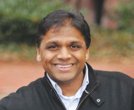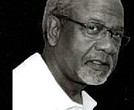Sports respite
6/3/2021, 6 p.m.
Good for tennis star Naomi Osaka, 23, who put her mental health needs above the demands of Grand Slam organizers, media and spectators this week.
Ms. Osaka, the world’s No. 2-ranked player, withdrew from the French Open on Monday after she was fined $15,000 and threatened with suspension for not participating in the customary news conference after her first round victory at the tournament.
While the postgame interviews are required of players in Grand Slam tournaments, including the French Open, Ms. Osaka tweeted on Sunday that she would not talk with the media, setting off a chain of surprising events and very personal revelations.
Ms. Osaka acknowledged in a subsequent statement announcing her withdrawal that she has suffered social anxiety and “long bouts of depression” since her first Grand Slam win in the 2018 U.S. Open against champion Serena Williams.
It was a controversial win, with fans, angered by an umpire’s call against Ms. Williams, booing from the stands as Ms. Osaka accepted the trophy. Ms. Osaka, then 20, burst into tears on the court. It should have been the first triumphant moment of her young career. Instead, during the post-match interview, she apologized for winning.
Ms. Osaka said in her French Open withdrawal announcement she was feeling “vulnerable and anxious” in Paris for the tournament and “thought it was better to exercise self-care and skip the press conferences” during the intense competition.
She said she is going to take some time off from tennis now.
She also said she wrote privately to the tournament apologizing and said, “when the time is right,” she would be happy to work with the tour to “discuss ways we can make things better for the players, press and fans.”
We hope Grand Slam officials take her up on her offer.
Of course it helps that Ms. Osaka is among the world’s highest-earning women athletes because of her endorsement contracts totaling tens of millions of dollars. We don’t know exactly, but a $15,000 fine to someone who reportedly earned more than $55 million during the past year probably amounts to nothing more than pocket change.
What we do know is that Ms. Osaka stood to lose more meeting with the media than a few thousand dollars. No price can be put on one’s mental health.
To its credit, sports apparel company Nike, one of Ms. Osaka’s biggest sponsors, put out a statement of support.
“Our thoughts are with Naomi. We support her and recognize her courage in sharing her own mental health experience.”
Mastercard, another backer, also released a statement of support, saying her decision “reminds us all how important it is to prioritize personal health and well-being.”
And so we offer a tip of the racquet to Ms. Osaka for her act of courage in both defying the French tennis federation and for making public the very private truth about her mental health that so many people would rather hide.
She has shined a light also on the incredible pressure and high expectations foisted onto elite athletes, whose public performances and private struggles often are fodder solely for the prurient interests of spectators and scoops for invasive media.
As media and as people, we need to re-examine how we treat people at all levels, including highly paid athletes who are in the public’s eye. Like most people, they are using their skills and talents simply to do a job. And like most of us, they deserve some of the privacy we expect.







